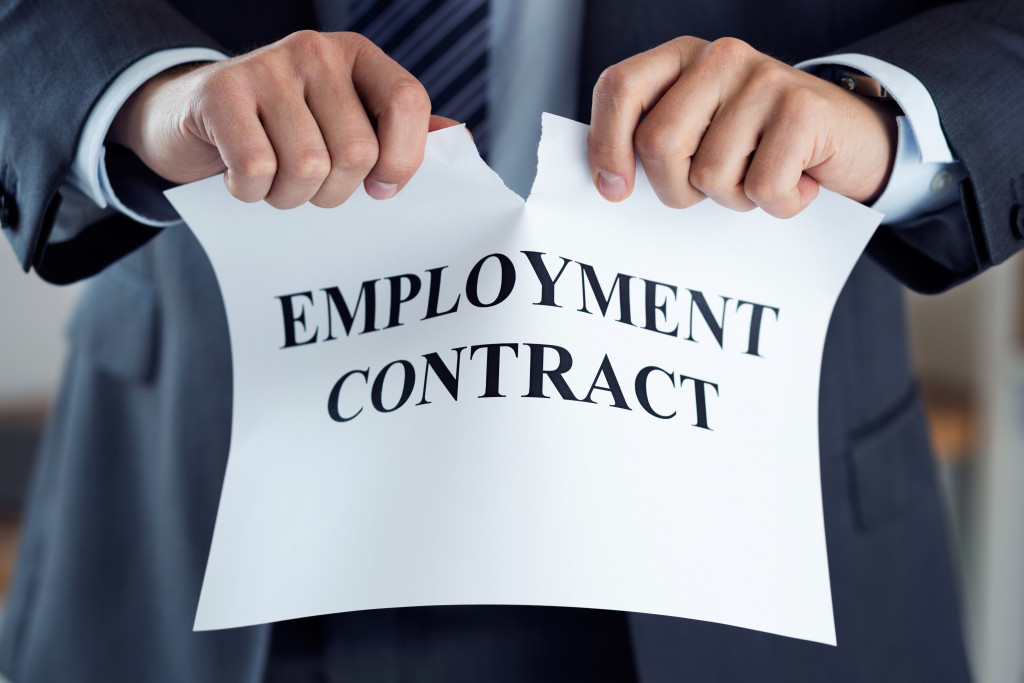Landlord-tenant conflicts are a common aspect of rental life. As tenants, understanding your rights is crucial to navigating these issues effectively. This article will explore illegal landlord actions, helping you identify and address them while safeguarding your rights and ensuring a fair and lawful rental experience. Whether you’re a new tenant or a seasoned renter, this knowledge is invaluable in maintaining a harmonious landlord-tenant relationship.
The Importance of Knowing Illegal Landlord Actions
Reports show a notable increase in conflicts between landlords and tenants, with a concerning 2.7 million households facing eviction threats every year. This leaves tenants vulnerable to exploitation and other forms of oppression. It is, therefore, important for tenants to be aware of their rights under the law and identify any illegal landlord practices that may be taking place. This includes wrongful evictions, unauthorized entry, neglecting repairs, and unjustified rent increases.
Being informed empowers you to protect your home, finances, and well-being. Understanding your tenant rights is vital for your well-being and peace of mind and ensuring that you get treated fairly and within the bounds of the law during your tenancy.
What Are My Rights As a Tenant?
Many states have laws that protect tenant rights and regulate landlord actions. It is essential to familiarize yourself with the laws in your state to ensure you and your landlord are both aware of the rules. Generally, the following are common rights afforded to tenants in most states:
The Basics of Tenant Rights
- Right to Habitable Premises: As a tenant, you have the right to live in a property that meets basic health and safety standards. That means your landlord is responsible for maintaining essential services such as plumbing, heating, and structural integrity. In many places, there are local building codes that landlords must adhere to.
- Right to Privacy: Your home is your private space. Your landlord can only enter your rented unit with proper notice, typically 24 to 48 hours in advance, unless it’s an emergency. Invasion of your privacy is a violation of your rights.
- Right to a Security Deposit: When you pay a security deposit, it’s your money held in trust by the landlord. You have the right to know how it’s being used, and it should be returned to you, minus any legitimate deductions, when you move out.
Lease Agreement and Rental Terms

- Right to a Written Lease: A written lease agreement is crucial. It outlines the terms and conditions of your tenancy, including rent amount, due date, and lease duration. Be sure to review and understand this document before signing.
- Right to Renewal: If you have a fixed-term lease, you generally have the right to renew it unless your landlord has a valid reason for not renewing, such as non-payment of rent or a breach of lease terms.
- Right to Notice: If your landlord wants you to move out, they must provide proper notice, usually 30 to 60 days in advance, depending on local laws. Sudden eviction without notice is illegal.
Rent and Rent Increases
- Right to Rent Receipts: Always ask for and keep records of rent payments. It’s your right to receive receipts, and these can be crucial if there are any disputes.
- Right to Notice of Rent Increases: Landlords must provide advance notice (usually 30 to 60 days) before increasing their rent. This varies by location, so check your local laws.
- Right to a Reasonable Rent Increase: Rent increases must be reasonable and not arbitrary. Your landlord cannot raise the rent to an unreasonable level without justification.
Maintenance and Repairs
- Right to Timely Repairs: Your landlord is responsible for maintaining the property in good condition. If something breaks or needs repair, they must address it within a reasonable time frame.
- Right to Withhold Rent: In some situations, you may have the right to withhold rent or deduct the cost of repairs from your rent if your landlord fails to make necessary repairs within a reasonable period, but this should be done following proper legal procedures.
- Right to “Quiet Enjoyment”: This legal term means that you have the right to live in your rental property without unreasonable disturbances or interference from your landlord.
Eviction and Termination

- Right to Proper Eviction Procedures: If your landlord wants you to leave, they must follow legal eviction procedures. Self-help evictions (e.g., changing locks, removing belongings) are illegal.
- Right to Due Process: You can contest an eviction and be heard in court. Landlords must go through the proper legal channels before evict you.
- Right to Relocation Assistance: Some jurisdictions require landlords to provide relocation assistance if they are evicting tenants for specific reasons, such as renovating the property or converting it to another use.
The Things Landlords Don’t Want You to Know
Landlords may not always be forthcoming about these tenant rights. Some might try to exploit a tenant’s lack of knowledge or awareness. However, knowing your rights can help protect yourself from unfair treatment and ensure a smooth and legal tenancy.
Researching and understanding the specific tenant rights and laws in your jurisdiction is essential, as they can vary significantly from one place to another. Local tenant associations or legal aid organizations can be valuable resources for additional information and assistance.
Types of Illegal Landlord Actions: What You Need to Be Aware Of
While most landlords are responsible and law-abiding, tenants must be aware of potential illegal actions that some landlords may engage in. Here are some common illegal things landlords do and what you can do about it:
- Illegal Evictions: Landlords can only evict tenants with proper notice and following legal eviction procedures. If you face an unjust eviction, consult local tenant laws and consider seeking legal advice.
- Unauthorized Entry: Landlords must provide notice before entering their rented space, except in emergencies. If your landlord repeatedly enters without notice, assert your right to privacy and communicate your concerns in writing.
- Security Deposit Misuse: Landlords must use security deposits for legitimate purposes, such as repairing damages beyond normal wear and tear. If your deposit is not returned or is misused, take legal action to recover it.
- Retaliation: Landlords cannot retaliate against tenants who assert their legal rights, such as reporting code violations or organizing a tenant association. Document any instances of retaliation and seek legal advice if necessary.
- Harassment: Persistent harassment or intimidation tactics from your landlord are illegal. Document incidents, communicate discomfort, and involve legal authorities if the harassment continues.
Legal Recourse: Steps to Take When Facing Illegal Landlord Actions
If you find yourself in a situation where your landlord is engaging in illegal activity, it’s important to know what steps to take. In most cases, the best first step is communicating your concerns with your landlord directly. If this fails or the problem is too serious for informal resolution, then seek legal advice and consider the following courses of action:
- Document Everything: Keep records of all communication with your landlord, maintenance requests, and incidents of illegal actions. Written evidence is invaluable.
- Notify Authorities: Report illegal actions to relevant authorities, such as housing agencies or health departments.
- Withhold Rent: In some cases, you can withhold rent until issues are resolved, but follow legal procedures.
Proactive Tips for Tenants To Prevent Illegal Actions Before They Occur
Being proactive and prepared can help prevent illegal landlord actions. Here are a few tips to get started:
- Thoroughly Review Your Lease Agreement: Before signing a lease, carefully read and understand all terms and conditions. Ensure that the lease complies with local tenant protection laws. Look out for any vague or unreasonable clauses that could be exploited by the landlord.
- Communicate Clearly with Your Landlord: Establish open and respectful communication from the beginning. Document all interactions in writing, including maintenance requests and agreements made verbally. Doing so creates a clear record of your expectations and the landlord’s responsibilities.
- Know Your Rights and Local Laws: Familiarize yourself with tenant rights in your area. Each jurisdiction may have specific laws governing landlord-tenant relationships, rent control, and eviction procedures. Understanding these laws empowers you to recognize illegal actions.
- Conduct a Move-In Inspection: Before moving in, perform a thorough inspection of the rental unit. Document existing damages, wear and tear, and any issues that require attention. Share this documentation with your landlord to avoid disputes about damages later on.
- Join or Form a Tenant Association: Consider joining a tenant association or forming one with fellow tenants. Collective bargaining and shared knowledge can deter landlords from engaging in illegal actions, as they are less likely to exploit a united group of tenants.
How Can a Lawyer Help You?
When facing legal issues related to your tenant rights and disputes with your landlord, hiring a lawyer can be a crucial step in protecting your interests. They can provide valuable advice and assistance with a variety of tenant-related issues, such as:
- Legal Expertise: Lawyers specializing in landlord-tenant law are well-versed in the intricacies of these cases. They can provide you with expert guidance on your specific situation and the applicable laws.
- Negotiation and Mediation: Lawyers can negotiate on your behalf with your landlord to resolve disputes amicably, potentially avoiding costly and time-consuming court proceedings. They can also facilitate mediation between parties.
- Review and Draft Legal Documents: Your lawyer can review lease agreements, notices, and other legal documents to ensure they are fair and comply with relevant laws. They can also draft documents on your behalf, such as demand letters or responses to eviction notices.
What Type of Lawyer Should I Hire?

When dealing with landlord-tenant issues, it’s essential to hire an attorney who specializes in this area of law. Look for lawyers with expertise in:
- Landlord-Tenant Law: These lawyers focus specifically on legal matters related to rental properties and tenant rights. They are well-versed in the laws and regulations governing landlord-tenant relationships.
- Civil Litigation: If your case escalates to a lawsuit, consider hiring a civil litigation attorney with experience in landlord-tenant disputes.
- Consumer Rights: Lawyers who specialize in consumer rights can help protect your interests as a tenant, especially in cases involving unfair or deceptive practices by landlords.
How Much Does It Usually Cause to Hire a Lawyer?
The cost of hiring a lawyer for landlord-tenant issues can vary widely based on factors such as the complexity of your case, your location, and the attorney’s experience. Lawyers may charge in different ways:
- Hourly Rate: Many lawyers bill by the hour, with rates that can range from $100 to $500 or more per hour, depending on their expertise and location.
- Flat Fee: Some lawyers offer flat fees for specific services, such as reviewing a lease agreement or drafting legal documents. Flat fees provide cost certainty for certain tasks.
- Free Consultation: Many lawyers offer a free initial consultation, allowing you to discuss your case and potential fees before committing to their services.
Frequently Asked Questions
Can I delay paying rent if my landlord does something illegal?
In some cases, you may be able to withhold rent if your landlord engages in illegal actions, but it must follow legal procedures and laws in your jurisdiction. Consult a lawyer for guidance.
Can they legally evict me?
If you withhold rent due to landlord’s wrongdoing, they may try to evict you. However, they must follow legal eviction procedures, and you have the right to defend your case. Seek legal advice.







